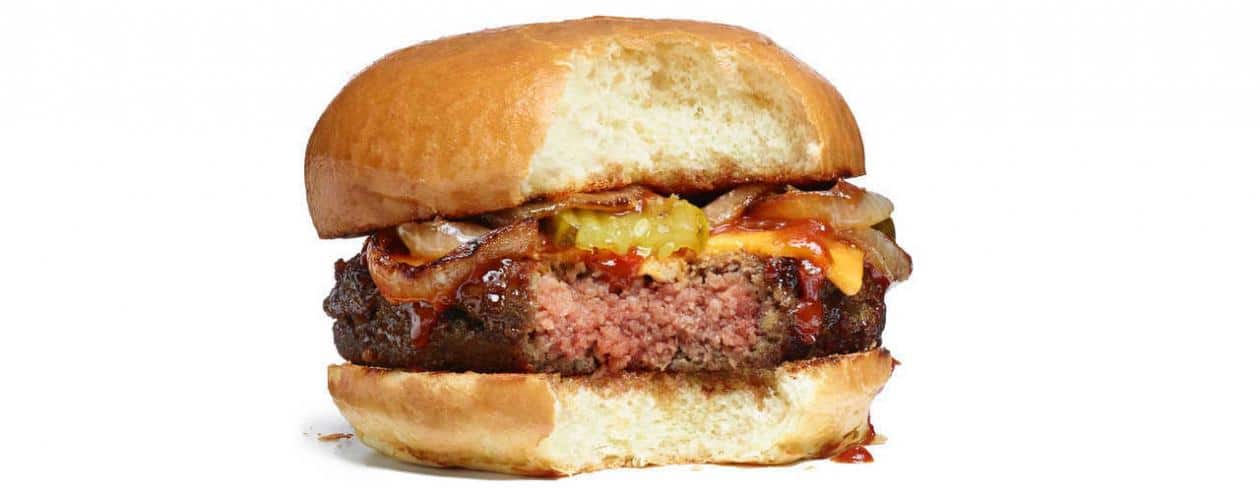United States (Palo Alto)
Known for his genetic research, biochemistry scientist and Stanford University professor Patrick Brown has created a plant-based hamburger that ‘bleeds’ just like a meat patty cooked medium-rare. With it, he aims to not only upend the trillion-dollar animal farming industry, but also create a more sustainable burger experience amid mounting environmental pressures.

His Silicon Valley startup Impossible Foods wants to win over meat-lovers by providing plant-based products that taste just as good as the real thing. They do this by recreating – and improving on – the meaty taste from a molecular level. Wheat protein, potato protein and coconut oil won’t satisfy a carnivore, so ‘plant blood’ is created through the inclusion of heme, a molecule found in high concentration in animal blood. It has a distinct iron flavour. However, rather than sourcing this from animals, Impossible Foods extracts it from the roots of legume plants and soybeans and then fermenting genetically enhanced yeast.
The rise of Impossible Foods and its potentially game-changing product correlates with the growing sales of cruelty-free faux meat market options. Its rejection of Google’s $300 million buyout offer – which was reportedly too low – is an indicator of the rising interest in investment in new sources of protein. Microsoft founder Bill Gates, Google Ventures and other notable investors have already backed the company with $75 million in funding.
Could we see the cow downgraded in our food chain? “Livestock is an antiquated technology. There are limits to what a cow can be – a cow can only be a cow,” says Mr Brown. “We can make anything.”
Warning: Burger porn…
Are you ready for Impossible Pork and Impossible Sausages? Coming soon, the man-made substitutes are designed for kosher and halal certification. Like the Impossible Burger, the main protein is soy, with sunflower and coconut oils serving as fat sources. Heme is the molecule that gives beef that familiar meaty taste and smell when cooked. The company argues that human history is in part a story about modification of edible plants – and has promised chicken, seafood and bacon substitutes next.
“We won’t stop until we eliminate the need for animals in the food chain and make the global food system sustainable.”
Bio
Adapted from a piece by Ben Horne for the Futures Centre.
Project leader
Patrick Brown, Founder and CEO
Support the Atlas
We want the Atlas of the Future media platform and our event to be available to everybody, everywhere for free – always. Fancy helping us spread stories of hope and optimism to create a better tomorrow? For those able, we'd be grateful for any donation.
- Please support the Atlas here
- Thank you!


